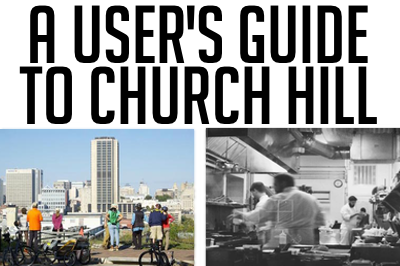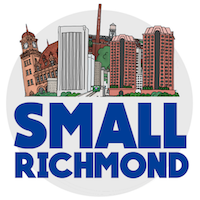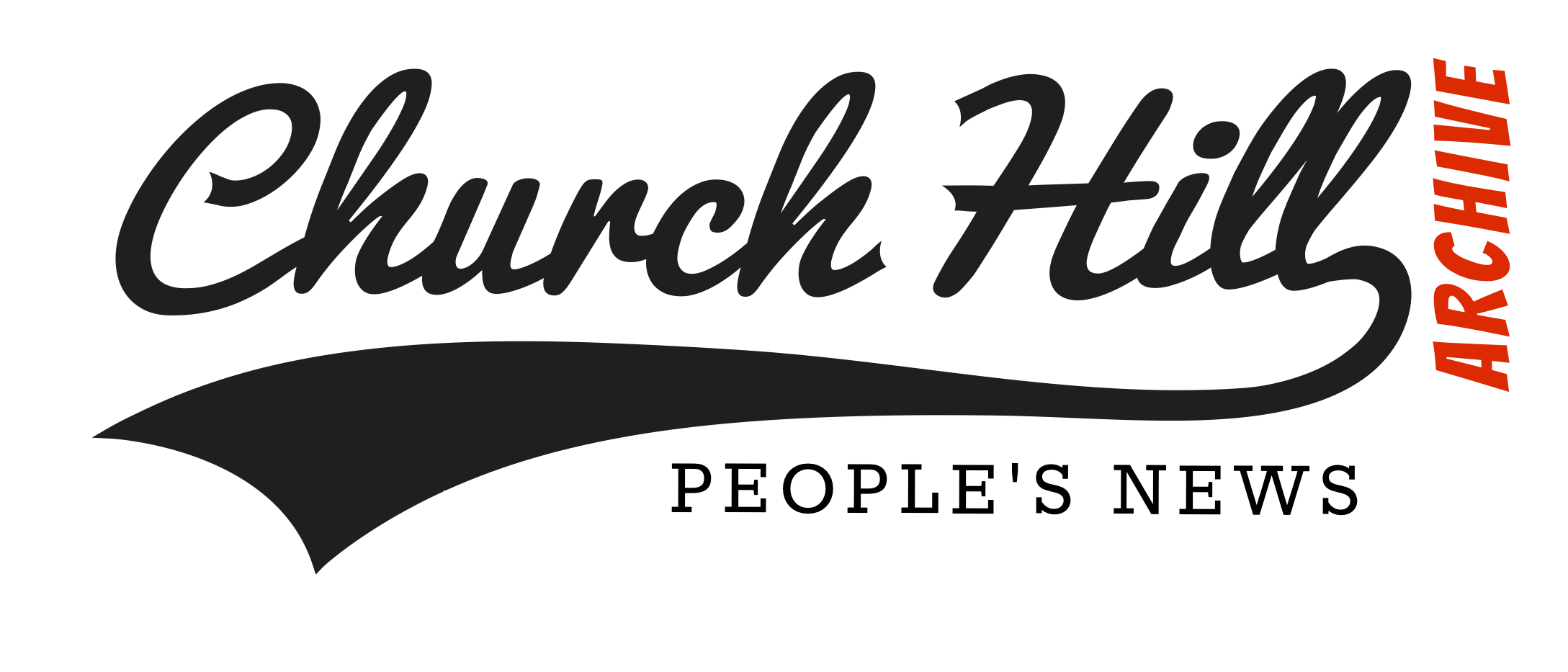RECENT COMMENTS
Newbille seeks to recognize Richmond City Promise Neighborhood Initiative
The agenda for Monday evening’s City Council city council meeting (PDF) includes a resolution sponsored by the 7th District’s Cynthia Newbille commending the Richmond City Promise Neighborhood Initiative (PDF) in their efforts to acquire a Promise Neighborhood grant.
The Richmond City Promise Neighborhood Planning Committee includes leaders from the Better Housing Coalition, Bon Secours Richmond Health System, City of Richmond, Communities in Schools of Richmond, East End Partnership with Families, Local Initiatives Support Corporation, Peter Paul Development Center, Richmond City Public Schools, RRHA, VCU, VCU Health Systems, YMCA of Greater Richmond, and others.
Based on the successes of the Harlem Children’s Zone (HCZ) (more on HCZ on This American Life), Promise Neighborhood grants are part of President Obama’s vision of “a new federal approach to America’s [urban] high-poverty areas”:
Successful strategies to address concentrated, intergenerational poverty are comprehensive in nature and address the full range obstacles that stand in the way of poor children. One highly- acclaimed model is the Harlem Children’s Zone in New York City, which provides a full network of services to entire needy neighborhoods from birth to college. By providing comprehensive supports to an entire community of low-income families, the Harlem Children’s Zone (HCZ) has made amazing progress over the last decade. […]
The sites for Promise Neighborhoods will be selected by the federal government after review of applications from cities in conjunction with their existing non-profit social service organizations and school districts. Prior to implementation of the Promise Neighborhoods, a comprehensive long-term business plan will be developed with neighborhood residents, local community organizations, local business, school districts, city and state governments, and economic development researchers. […]
Promise Neighborhoods will work with neighborhood organizations to provide:
- Counseling for new parents on goal-setting and proper care of infants and young children
- Early childhood education and high-quality child care
- Extended day and extended year school programs
- Safe and educational after-school programs for all resident children; programs will place a strong emphasis on cultivating meaningful parent involvement
- Crime prevention support programs that engage both young people and community residents to implement proven anti-crime activities
- Technology training to area youth and adults
- Job training and internship placement to resident youth by developing and maintaining strong ties to the region’s private sector
- Community health facilities that provide basic and preventative health care services and train residents on healthy living techniques, including proper nutrition, exercise and development of healthy living spaces
- Resources that strengthen families including family counselors and social workers and
anti-domestic violence programs- Financial counseling for entire families that includes emphasizing stable employment, personal savings and home ownership
- Effective leadership development training to ensure that Promise Neighborhood programs are sustainable and staffed by local residents.






Whoopity Do! I will leave it at that. Goodnight, Brooklyn.
I highly recommend the book about the HCZ – “Whatever It Takes” by Paul Tough. HCZ is a very cool model that makes a lot of since, but needs a ton of funding. There are a couple cities across the country having preliminary success starting HCZ/Promise Neighborhoods.
I too have read good things about the Harlem Childrens Zone.
However, one of the things that I’m wondering about is that a lot of these services are already available up here on the hill – the first item on the list is about counseling for new parents. Isn’t that what the Family Resource Center is supposed to do already? Plus, Bon Secours Community Hospital was doing something, I think, involving teen pregnancy and counseling of new mothers, I’m vague on what the initiative was but think I saw something here about it. Also, there’s EDI itself, which, when first opened, during, as I recall, Leonidas Young’s tenure, was supposed to offer one stop shopping for everything from social services and food stamps to bill paying, plus job training (although the latter turned out to be a joke, I remember a neighbor going there when she lost her job and reporting that the only thing that worked was the door. The staff got paid but did nothing, and the computers were low grade at best; turned out they couldn’t offer her anything at all so far as training, but they’d gotten big grants to do training…) There’s also the Vernon J. Harris health care center, which offers low cost health care in the neighborhood, and down on Main Street near 20th or 21st, there’s another health center like it.
Additionally the Boys and Girls Club, and Peter Paul Development Center, are both located in the east end.
So why do we need more money for more programs? What’s wrong with looking at the existing ones? Don’t they work? Seems Ms. Newbille ought to know about at least the Family Resource Center, right? She ran it, right? Isn’t it supposed to offer everything from clothing to financial advice for families in the east end?
I hate to sound pessimistic, but in my years of living up here on the hill, I’ve seen many grants given out, with very little results. Seems usually the grants go to pay the staff, who make out big time, but no one looks for results.
I notice the list of parties involved in the planning committee includes something called East End Partnership with Families. Anyone know what that is, more importantly what it does? I’m curious.
Newbille is for spending money to teach common sense? Lordy, I just wish she could learn to return a telephone call. Her’s my raspberry award: Ppppppbbbbbblllllltt.
err, “Here” even. I’ll blame the Guinness for my typo ;).
Listen to the TAL story on Harlem Children’s Zone if you doubt that this could be huge. Two things stick with me from hearing this a while back: 1) Raising kids so that they will have the skills and capabilities to succeed in school and elsewhere is one of the differences between more and less successful communities, and importantly, the substance of which is known and can be taught. 2) A patchwork set of social programs is not enough in a really stressed community. Weaving these services together tightly so that each and every kid gets lifted no matter what their home life is the big endeavor.
@crd
The East End Partnership with Families
http://www.redorangedesign.com/EEPF/overview.html
“East End Partnership with Families is a collaboration of community and human service agencies working together to improve the lives of the children and families of the East District of Richmond.”
I like the concept and appreciate Cynthia championing the idea for Richmond and especially the East End. It sounds like there will be a collaboration of existing programs along with new intitiatives to address the future of our kids and thus our City.
It sounds like a lot of the program teaches personal responsibility and raises expectations for our kids, families and community. I’m a believer.
John M, I also watched a video on the New Yorker web site about Geoffrey Canada, the CEO of the Harlem Children’s Zone.
http://www.newyorker.com/online/blogs/newsdesk/2009/05/new-yorker-summit-video-geoffrey-canada.html
He’s pretty incredible! However, I noticed that he’s got a mix of charter and public schools, and he’s raised millions of private dollars from sources such as Wall St. to support it.
I like the idea of the program, don’t get me wrong – I just wish Richmond would do something right for once, instead of getting grants and then paying the administrators more than they spend on the intended recipients. I’ve seen so much ‘feeding at the public (or grant-funded) trough’ go on here, hence my doubts. Hey, maybe Richmond will win one of these grants and do the right thing this time!
#8 I, as a personal witness to the events desribed in your second paragraph,applaud your comments. Hmmm, should I name names? Probably not. The grant recipients of these top heavy organizations know who they are. If you’re curious, FOIA requests exist for that purpose.
@crd – The goal, as I understand it, is not to create a new set of social services, but to weave the ones currently available (and working) together and then fill in the gaps. Thus, the large number of partners listed in the announcement. Based on the book, HCZ runs its own set of charter schools and if the greater community was aware of their success I think they would be more open to PHC. Many of the detrackers to HCZ’s success note the heavy support from the private sector – he has 2 hedge fund managers on the board that routinely donate multi millions a year. Certainly you aren’t going to find that in every community, but the cost of the services don’t need to be as high as in NYC.
It is unsettling that we haven’t learned the lessons of the last fifty years about the efficacy of government programs in changing the economic behavior of free citizens. Our neighborhood is practically a petri dish of failed social experiments that have exacerbated or even CREATED intergenerational poverty.
Ironically, RCPNI will require more of our tax dollars to try to undo the failures of the Great Society. Why are we so arrogant as to believe our generation has a better means of using government to fix private problems than those before us? Once again, I feel like Laocoön and can see the snakes on the way.
U.S. Department of Education
Office of Communications & Outreach, Press Office
400 Maryland Ave., S.W.
Washington, D.C. 20202
FOR RELEASE
April 30, 2010
Contact: Justin Hamilton
(202) 401-1576 or press@ed.gov
U.S. DEPARTMENT OF EDUCATION OPENS COMPETITION FOR PROMISE NEIGHBORHOODS
The U.S. Department of Education today launched the Promise Neighborhood program, the first federal initiative to put education at the center of comprehensive efforts to fight poverty in urban and rural areas.
The $10 million available in fiscal 2010 will support up to 20 organizations with one year of funding to plan for the implementation of cradle-to-career services designed to improve educational outcomes for students in distressed neighborhoods.
“We need to take an all-hands-on-deck approach to lifting our families and our communities out of poverty,” President Barack Obama said. “Promise Neighborhoods will support a number of different services and educational reforms to help improve the lives of our young people from birth through childhood, from college through a career.”
“The Promise Neighborhoods program brings all of the Department’s strategies together—high-quality early learning programs, high-quality schools, and comprehensive supports to ensure that students are safe, healthy and successful,” U.S. Secretary of Education Arne Duncan said. “These services must be comprehensive, and schools must put education at the center.”
The Promise Neighborhoods program is based on the experience of programs such as the Harlem Children’s Zone, which serves a nearly 100-block area in New York City with parenting classes, early learning centers, and health and social service programs and has boosted students’ academic outcomes dramatically. Under the Promise Neighborhood program, nonprofits and institutions of higher education will be eligible for one-year grants supporting the design of comprehensive community programs. The programs must have the specific goal of preparing students for success in college and careers. As part of the planning process, applicants must focus their efforts on schools in the neighborhood and build services for students in those schools from birth through college to career.
The Department plans to make up to 20 planning grants, ranging between $400,000 and $500,000. It is inviting applications from projects serving urban neighborhoods, rural areas and tribal communities. Applications will be due on June 25.
Today’s release of applications for planning grants to develop Promise Neighborhoods is the first step in a multiyear process. President Obama’s fiscal 2011 budget includes $210 million to support five-year grants to implement plans to offer comprehensive services and to support planning grants in additional communities.